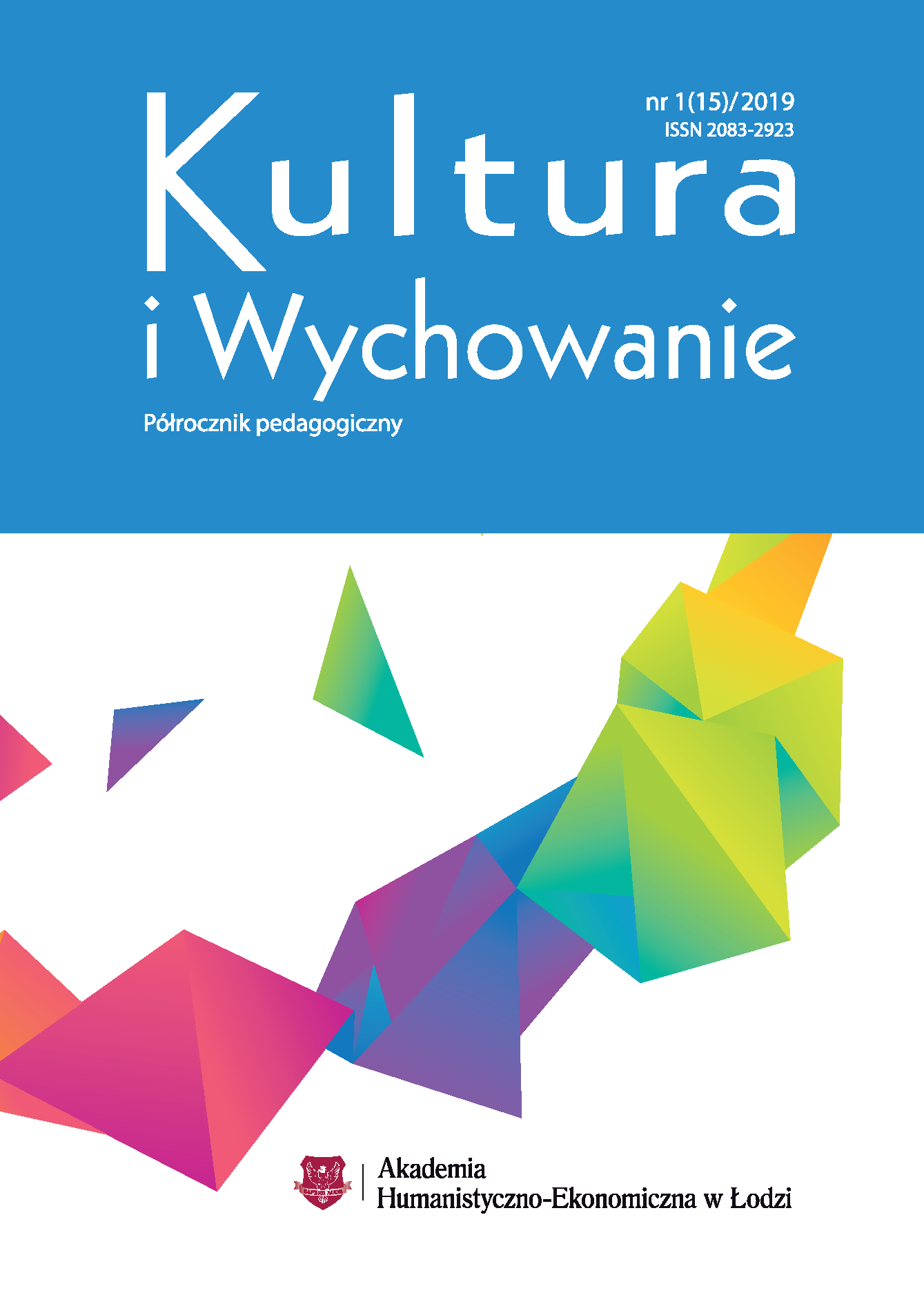Child welfare from the perspective of family judges and social services in the context of supporting the biological family in regaining custody over the child
DOI:
https://doi.org/10.25312/2083-2923.15/2019_01maKeywords:
best interest of the child, child, family, Family Court, social welfare, social work, social servicesAbstract
The decision about placing a child outside his or her family is difficult for the representatives of the institutions involved in the process of helping the family. The representatives might feel they have failed in their efforts. This decision also determines the future of the child and the possibility of maintaining the bond with his or her biological parents and siblings. Moreover, the decision about returning the child to the family is usually hard and associated with a risk of failure. It needs to be said that reintegration and regaining custody over the child by his or her biological parents should be the focus of the activities taken by social services and their representatives in aid of families. The aim of this article is to discuss the difficulties that might arise in the context of supporting the natural family in regaining custody over the child. In order to illustrate these difficulties, the author presents the results of her own studies in which she carried out an analysis of the semantic field related to the “welfare of the child”, which included an analysis in relation to the following professional groups: family judges, professional probation officers, social workers, family assistants and representatives of two kinds of social organisations, those with a defined profile of activity and those involved in social animation.
References
Arczewska M., Dobro dziecka w perspektywie przedstawicieli wybranych środowisk zawodowych, Dom Wydawniczy Nomos, Kraków 2017.
Błeszyński J., Rodkiewicz-Ryżek A., Ochrona praw dziecka w świetle standardów polskich i międzynarodowych, „Pedagogia Christiana”, nr 2(30)/2012.
Cunningham H., Children and Childhood in Western Society Since 1500, Longman, New York 1995.
Czerederecka A., Rozwód a rywalizacja o opiekę nad dziećmi, Wydawnictwo LexisNexis, Warszawa 2010.
Haak H., Władza rodzicielska. Kodeks rodzinny i opiekuńczy. Komentarz, Towarzystwo Naukowe Organizacji i Kierownictwa, Toruń 1995.
Od Deklaracji genewskiej do Konwencji o prawach dziecka. Rys historyczny, https://brpd.gov.pl/sites/default/files/rpd_stare/uploadfiles/04str_20_lat_kopd_historia.pdf (dostęp: 14.09.2018).
Prusinowska-Marek A., Zapewnienie bezpieczeństwa i pomoc dziecku w sytuacji kryzysowej. Praktyczny przewodnik dla osób pracujących z dzieckiem i rodziną, Mazowieckie Centrum Polityki Społecznej, Warszawa 2015.
Robin R., Badanie pól semantycznych: doświadczenia Ośrodka Leksykologii Politycznej w Saint-Cloud, [w:] M. Głowiński (red.), Język i społeczeństwo, Czytelnik, Warszawa 1980.
Smyczyński T., Prawo rodzinne i opiekuńcze. System prawa prywatnego, Wydawnictwo Naukowe PWN, Warszawa 2005.
Stojanowska W., Rozwód a dobro dziecka, Wydawnictwo Prawnicze, Warszawa 1970.
Van Den Berg J.H., Dziecko stało się dzieckiem, [w:] M. Janion, S. Chwin (red.), Dzieci, t. II, Wydawnictwo Morskie, Gdańsk 1988.
Downloads
Published
Issue
Section
License
Copyright (c) 2019 Akademia Humanistyczno-Ekonomiczna w Łodzi

This work is licensed under a Creative Commons Attribution-ShareAlike 4.0 International License.

